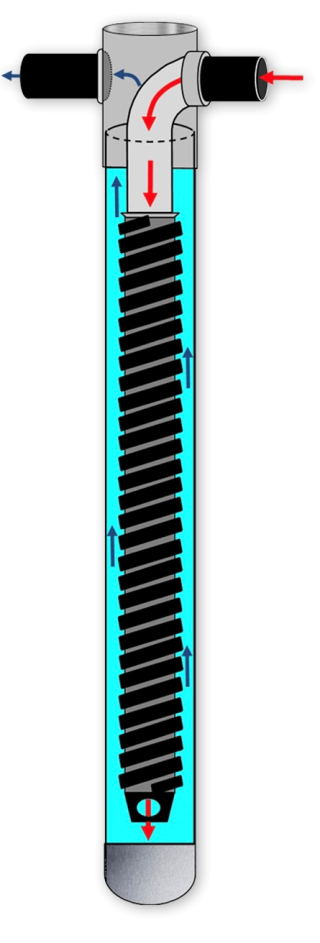RSK has agreed a partnership with Rygan Corporation, a US material sciences company that specialises in composite engineering and thermodynamics.
Rygan’s ground-source heat system has been used in the USA since 2008; RSK’s contract brings the technology to the UK and Ireland for the first time.
RSK company Ground Heat will use the Rygan system to offer renewable heating solutions for commercial and domestic applications. Sister company Drilling Supplies & Hire Services will also sell systems to other businesses.
Ground-source heat pumps are seen as a potential source of year-round clean energy. As part of the UK government’s road map to net zero, its Ten Point Plan aims for the installation of 600,000 heat pumps a year by 2028, of which only around 30,000 are currently being delivered.
Ground-source heat pumps work by extracting heat stored in the ground. At depths of a metre or more, there is a store of heat that can be tapped for heating in the winter. The most practical ways of extracting this energy are to bury pipes in the ground in horizontal trenches at a depth of one or two metres or by using vertical boreholes. Fluid passed through these pipes absorbs the heat from the ground and then enters a compressor that raises it to a higher temperature, which can then heat water for the heating and hot-water circuits of the premises. These premises could have residential, commercial or industrial uses: any building that wants to make its heating system more efficient and renewable could benefit from ground-source heat.

All ground-source heat pumps are dependent on ground loops for efficiency. If the temperature of the water coming in from the loop field falls below 5°C, heat pumps are forced to work harder to maintain thermostat settings. This uses more energy and results in higher operating costs. The Rygan coaxial system can provide efficient ground-loop temperatures with about half the borehole requirements of traditional plastic ground loops, it is claimed. The Rygan composite material presents less resistance to heat transfer between the ground and the heat pump, thereby enabling it to collect more heat with less drilling.
Furthermore, Rygan produces a system suitable for depths beyond that conventional ground loops can achieve – as deep as 460 metres in the USA. This enables access to the warmer formation temperatures that are off limits to traditional ground loops, it says. For larger projects such as tower blocks, this can be particularly advantageous and cost-effective. Fewer boreholes mean a lower space requirement, which has significant benefits in urban areas where space might be limited. This advantage means more urban and metropolitan venues become eligible for geo-based sustainability options.
“To be able to offer this pioneering technology to our clients is an exciting prospect,” said Drilling Supplies managing director Phil Smith.
“RSK has clearly demonstrated both aptitude and commitment in helping its client base meet sustainability objectives,” said Rygan chief operating officer Lane Lawless. “RSK understands that demand-side reduction is mission critical for achieving meaningful sustainability and is now exclusively poised to deliver the most efficient, closed-loop geothermal systems in the UK and Ireland. These systems will be delivered with the least amount of property disruption, drilling and time on-site. The warm, comfortable environment demanded by the occupants of homes and buildings just became exponentially more achievable and economical for RSK’s client base.”
Got a story? Email news@theconstructionindex.co.uk



